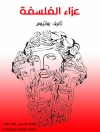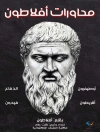Xenophon’s ’The Memorabilia’ is a profound work that intricately outlines the teachings and philosophies of Socrates, while simultaneously serving as a defense of his character amidst the political turmoil of Athens. Written in a Socratic dialogue style, the text captures the essence of Socratic thought through carefully crafted conversations, inviting the reader to engage with profound moral and ethical issues. The literary context of the work is crucial, as it emerges from a period where Socratic ideals were being questioned, making Xenophon’s portrayal not only a testament to Socrates’ enduring influence but also a critical commentary on Athenian society. Xenophon, a renowned historian, soldier, and student of Socrates, draws from his experiences within the socio-political landscape of ancient Greece. His dual role as both a participant in and an observer of the events surrounding Socrates’ life and death lends unique authenticity to ’The Memorabilia.’ Xenophon’s close association with Socrates and his philosophical inquiries illuminate his motivations for preserving the teachings of his mentor, as he sought to provide a counter-narrative to the dominant criticisms of Socratic philosophy. ’The Memorabilia’ is essential reading for anyone interested in ethical philosophy, Socratic teachings, or the history of classical thought. Its engaging dialogue and rich context offer readers not only a glimpse into the mind of Socrates but also a reflection on the values that continue to resonate today. This work serves as a bridge between ancient wisdom and contemporary moral questions, making it a timeless treasure for scholars and casual readers alike.
Om författaren
Xenophon (c. 430 – 354 BCE) was an ancient Greek philosopher, historian, soldier, and student of Socrates. His contributions to historical narrative and philosophy alike are deemed significant, with the work ’The Memorabilia’ being a primary example of his literary prowess. Xenophon composed this text as a defense and portrait of his teacher, Socrates, following the latter’s trial and execution in 399 BCE. The Memorabilia not only serves as a source of Socratic thought but also showcases Xenophon’s prose style, reflective of his desire to maintain a clear and accessible narrative. Unlike Plato, Xenophon’s representation of Socrates emphasizes a practical wisdom and an ethical lifestyle rather than abstract philosophical concepts (Gray, 1989). His other key works include ’Anabasis’, detailing his experiences during the March of the Ten Thousand, and ’Cyropaedia’, a partly fictional account of Cyrus the Great’s education and rule, indicating his interest in leadership and governance. Xenophon’s writing is marked by simplicity, directness, and a concern with factual accuracy, which often paralleled his career as a mercenary leader and provided a unique perspective on the political and social dynamics of his time (Waterfield, 2006).












